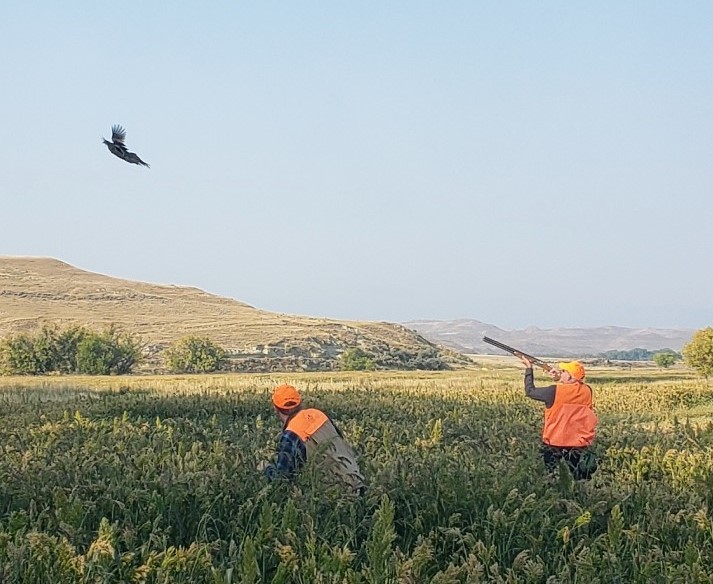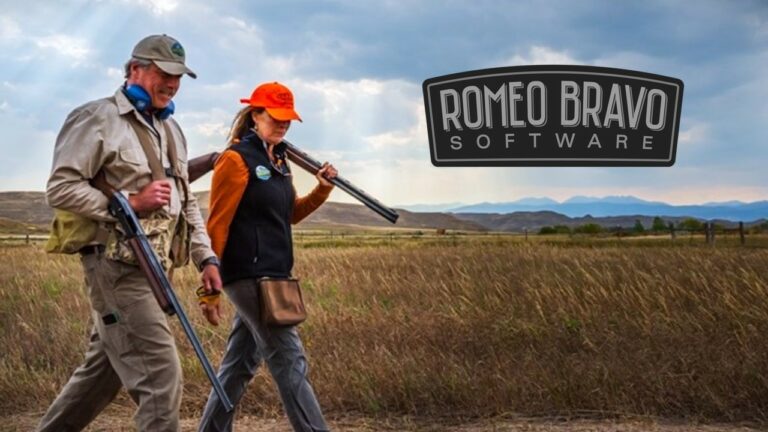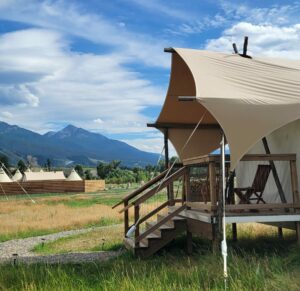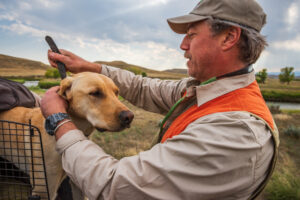Written by Chad Weber, ORVIS Endorsed Guide at the Flying B Ranch
There are many facets to running a great hunting lodge, from elaborate lodging to delicious food, hard-flying birds and staunch dogs. Another important facet is the guides and one critical aspect that is often overlooked is our guides’ etiquette. A guide with great field etiquette can make all the difference in the world. After 25+ years of professional guiding for numerous operations in different states, I helped compile a list of proper guide etiquette with fellow seasoned guide BJ Walle. Each spring we use this list to teach future guides at our Orvis-endorsed Wingshooting Guide School at the Flying B Ranch in Kamiah, ID. Here is a brief breakdown of that list:
- Language
- There is a time and a place for profanity but with women and children along, that is not it.
- Topics of Conversation
- Ask and you shall receive! Ask clients about where they are from, their family, job, hunting experience, etc.
- Customer Service
- “Thank you”, “yes sir” and “yes ma’am” can go a long way.
- Focus the Conversation on the Client
- If you plant the seed most folks love to talk about themselves.
- Dress Code
- Clean clothes, a good haircut and a shave always look professional.
- Equipment Appearance
- A clean, organized truck can show your professionalism from a mile away.
- Dog Handling & Treatment
- Nobody likes to see a guide lose their temper with a dog…so be subtle.
- Bird Handling
- Again, a subtle dispatch. Watching a guide twist a bird’s head off is no fun.
- Hunting/Ranch Knowledge
- Knowing the wind, bird habits and how to hunt goes a long way to success.
- Leader in the Field
- Communication, communication, communication!
- Time Management
- Set the pace and everything will run smoothly.
- Health/Hydration
- Knowing any client health conditions/complications can save a lot of headache. Knowing how many they had the night before helps too!
- Terrain
- Again, knowing clients’ health conditions and even their equipment can determine a good or bad day in the field.
- Safety in the Field
- Safety is the #1 of them all. Having a clay’s course gives a great glimpse into a clients’ abilities and gun handling skills.
In conclusion, reviewing this list with your guides can help elevate their field etiquette resulting in a smooth, safe and professional hunt. After all, that is what we are all looking for! If you are interested in learning more at our Orvis-Endorsed Guide School contact Flying B Ranch or call 1-800-472-1945.
Request A Romeo Bravo Software Demo Today




